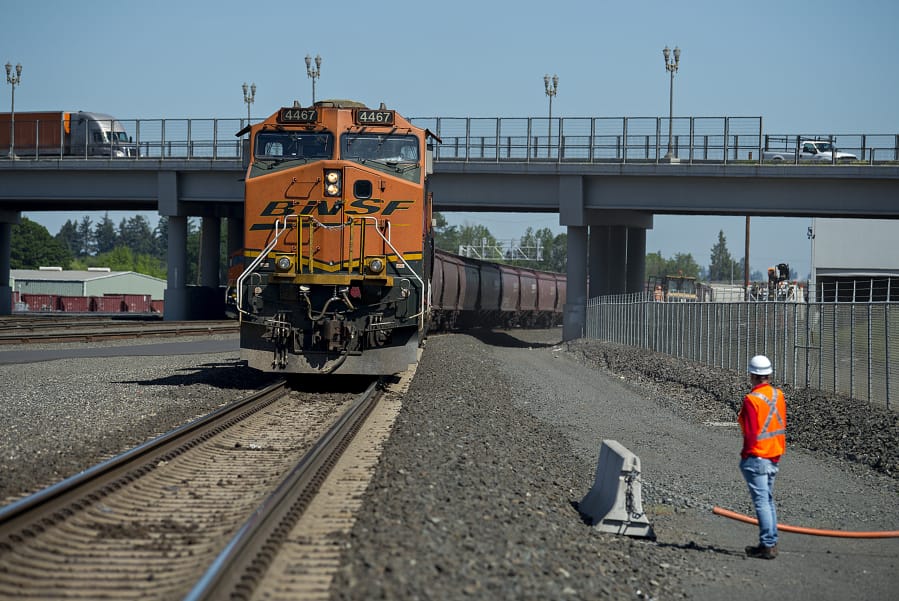BNSF Railway shipments were at an all-time high during the first quarter of this year, the company reported, surpassing its record set in 2006. BNSF, which is also moving record numbers of trains through Southwest Washington, is adding employees.
“As we approach the 170th anniversary, we’re rolling like never before. … We achieved an all-time first-quarter volume record of units handled, surpassing the prior record of 2006,” said BNSF spokesman Gus Melonas. “As a result, we’re seeing the same reflection in Vancouver on our network through the Columbia River Gorge and through Vancouver to the Seattle connection.”
For decades, BNSF has moved about 30 trains per day through the Gorge, but now that number is up to between 40 and 45 trains.
In the first three months of 2018, the company moved 2.6 million car loads of material systemwide. BNSF is also moving record numbers of train cars through its Vancouver shipping yard, around 850 train cars per day carry products going to more than 100 customers, Melonas said.
Around 750 people work for BNSF in Vancouver, but BNSF is in the process of hiring about 50 new employees to keep up with the demand while also keeping pace with attrition.
Each train takes an average of 280 truckloads off the highway. In a 24-hour period, BNSF moves enough freight through Vancouver on its mainline to equal 16,000 truck loads.
The jump in shipments is largely driven by an increase in agricultural commodities, such as grain. It’s also partly fueled by an increase in general merchandise shipments, ranging from televisions to auto parts, found in big box retail stores.
As a common carrier, BNSF also ships chemicals, wood products and steel.
Worker safety has also improved with the railroad, Melonas said. Currently, BNSF has gone well over a year without a worker being killed on the job.
“There’s always an anxious customer at the end of the line, but safety is our top priority,” Melonas said. “We currently are in a record streak … our longest period without a fatality.”
However, on Wednesday, a teenage boy lost part of his leg crawling under a slow-moving BNSF train in Washougal. Police and BNSF train workers helped stabilize the boy until he could be transported. As of Thursday, he was recovering in a Portland hospital.
Although its shipping is up, BNSF, when compared with other companies around the United States and Canada, is doing pretty well at not interrupting Amtrak train service. A report released by Amtrak earlier this year gave BNSF a B on an A to F scale. Only Canadian Pacific fared better, receiving an A. BNSF’s grade was based on its trains being responsible for less than 1,000 minutes of delay per 10,000 train miles traveled by Amtrak trains on its network.
Amtrak runs passenger trains on BNSF tracks from Vancouver, B.C., to Portland on the Cascades route; from Seattle to Portland on the Coast Starlight route; and from Minneapolis, Minn., to Portland on the Empire Builder route.
The company has a network of 32,500 route miles in 28 states and three Canadian provinces.




